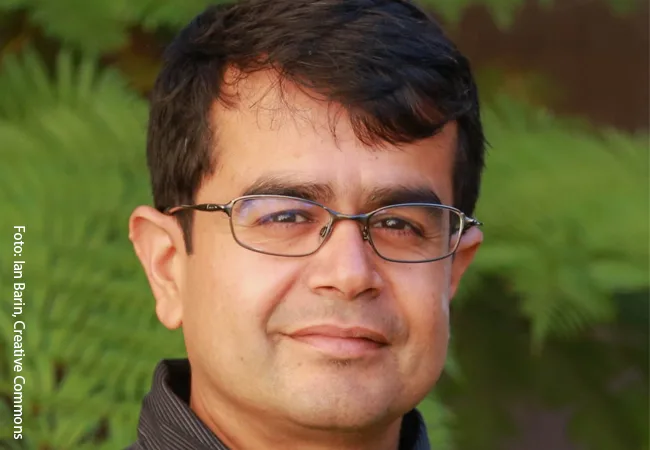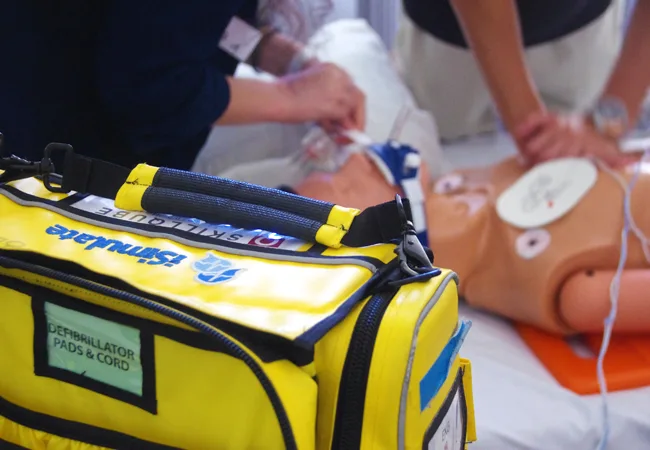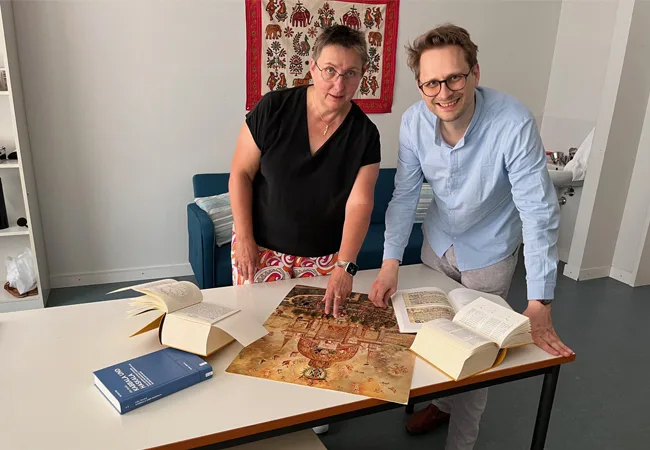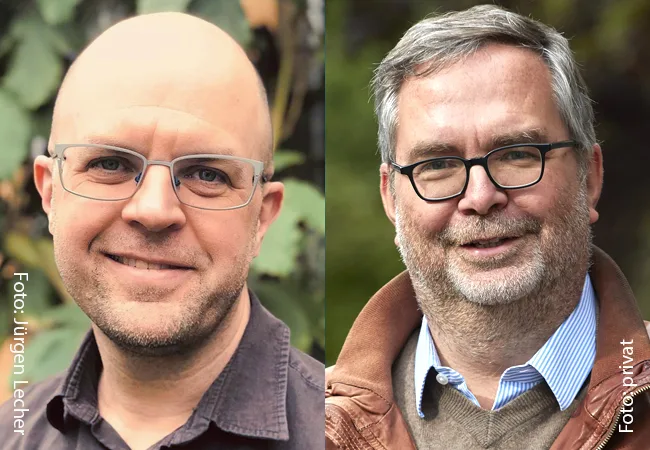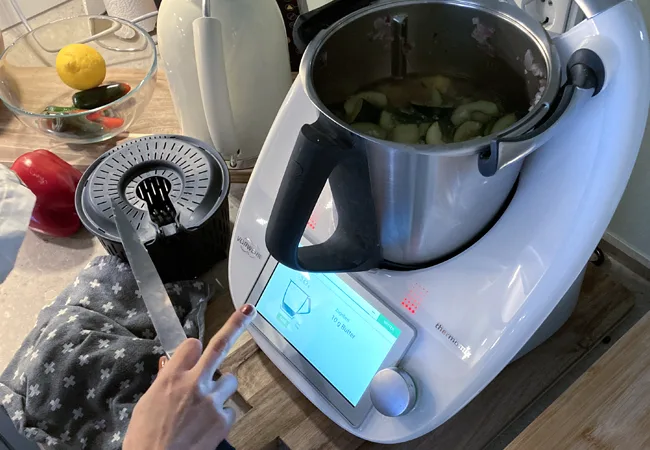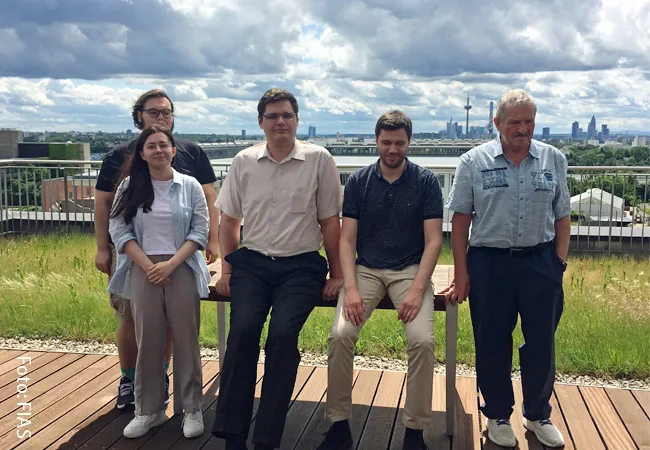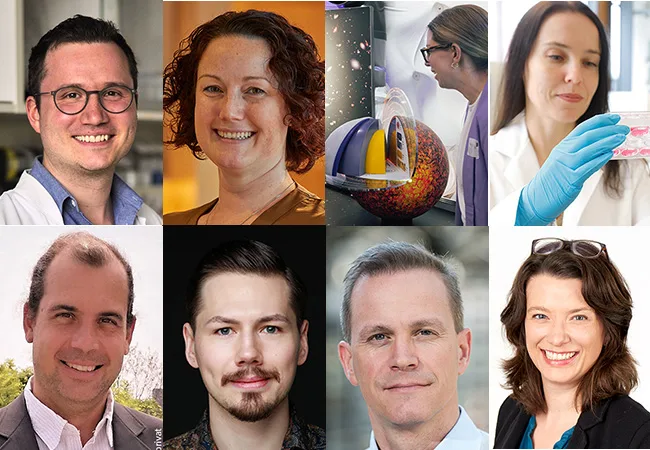Orally, intravenously or as an ointment – how drugs reach their target is a determining factor in their therapeutic effect. Samir Mitragotri, an expert in this field, will visit Goethe University Frankfurt in November.
Samir Mitragotri, the prominent Indian American researcher from Harvard University, USA, will come to Frankfurt for a week in November as part of the Friedrich Merz Visiting Fellowship Endowment. At Harvard, he heads a laboratory for drug delivery systems and biomaterials at the John A. Paulson School of Engineering and Applied Sciences and the Wyss Institute, which works at the interface between basic research and engineering. Professor Maike Windbergs from Goethe University Frankfurt’s Institute for Pharmaceutical Technology is organizing the visiting professorship, and will accompany Mitragotri throughout his stay. “We have known each other for many years. He was very impressed by the visiting professorship format and accepted our invitation immediately.” Apart from a scientific symposium with high-ranking participants, there will also be a lecture for students and a symposium for Frankfurt citizens.
As part of the visiting professorship, Mitragotri will speak to an audience of experts about his main topic, drug delivery, i.e. the development of drug delivery systems that facilitate drug administration. In general terms, these are systems that deliver a drug to its target site in the human body in a certain form and via a specific route – and in such a way that it maximizes the drug’s therapeutic effect. “These systems transport fragile biomolecules, for example proteins,” Windbergs explains. “They have to be packaged in such a way that they arrive in the body in the form that is the most effective. Only then can they also have the desired therapeutic effect.” Drugs taken orally as tablets are the simplest method. An alternative is the administration by means of an injection, for example into a vein, a muscle or under the skin, i.e. subcutaneously. Then there are topical types of medication that are neither swallowed nor injected, such as ointments, nose spray, gargles or eye drops.
The aim of the Friedrich Merz Visiting Fellowship Endowment is to invite a “particularly distinguished scientist” in the field of pharmacy or medicine to Goethe University Frankfurt. To Windbergs, Mitragotri is the ideal candidate. “He has developed very sophisticated delivery systems that center on overcoming the biological barriers of the human body, such as the intestinal barrier or the skin.” For transdermal drug delivery, he has developed peptides and ionic liquids that penetrate the skin. “Because these are charged, it is easier for the active ingredients to enter the body through the skin,” Windbergs explains. In this way, it is possible to treat psoriasis, for example, without having to inject the active ingredient siRNA – which stands for “small interfering RNA”, i.e. short, double-stranded RNA fragments composed of 21 to 28 nucleotides. They can immobilize a target gene by destroying its RNA transcripts. Although injecting siRNA into the skin is effective, it is painful and only covers small areas. Thanks to ionic liquids, topical, i.e. external, siRNA administration is now possible. In addition to methods that overcome the body’s biological barriers, another of Mitragotri’s most important topics is synthetic carriers that are transported like “hitchhikers” around the body on its own cells – red blood cells, macrophages or T cells. “This enables more targeted drug delivery,” explains Windbergs.
What does Maike Windbergs personally hope to gain from the visiting professorship? Firstly, that intensifying “bilateral communication” between Harvard and Frankfurt will bring fresh ideas. Furthermore, Mitragotri’s visit could give the topic of drug delivery greater overall visibility. In the past, it has mostly been the discovery of new active ingredients that has attracted attention. Drug delivery, in contrast, tends to lead a shadowy existence. “The coronavirus pandemic led to some progress in this area. People realized that we need not only a good vaccine but also good packaging so that the vaccine arrives in the body in the right way.” Now, she says, Mitragotri will help raise greater awareness for the topic.
Author: Andreas Lorenz-Meyer
The Friedrich Merz Visiting Fellowship Endowment was established in December 1985 to mark what would have been the 100th birthday of Friedrich Merz, the company’s founder. As one of the first members of the Senckenberg Society for Nature Research, he was closely associated with Frankfurt University and a promoter of science. The aim of the visiting professorship is to attract a particularly distinguished scientist in the field of pharmacy or medicine to Goethe University Frankfurt. First endowed in 1987, it has since been awarded annually, apart from two exceptions. The visiting professorship and the symposium, whose topics range from basic research to healthcare, offer researchers from higher education and industry an opportunity each year to exchange knowledge and work more closely together. www.uni-frankfurt.de/Friedrich-Merz-Stiftungsgastprofessur


